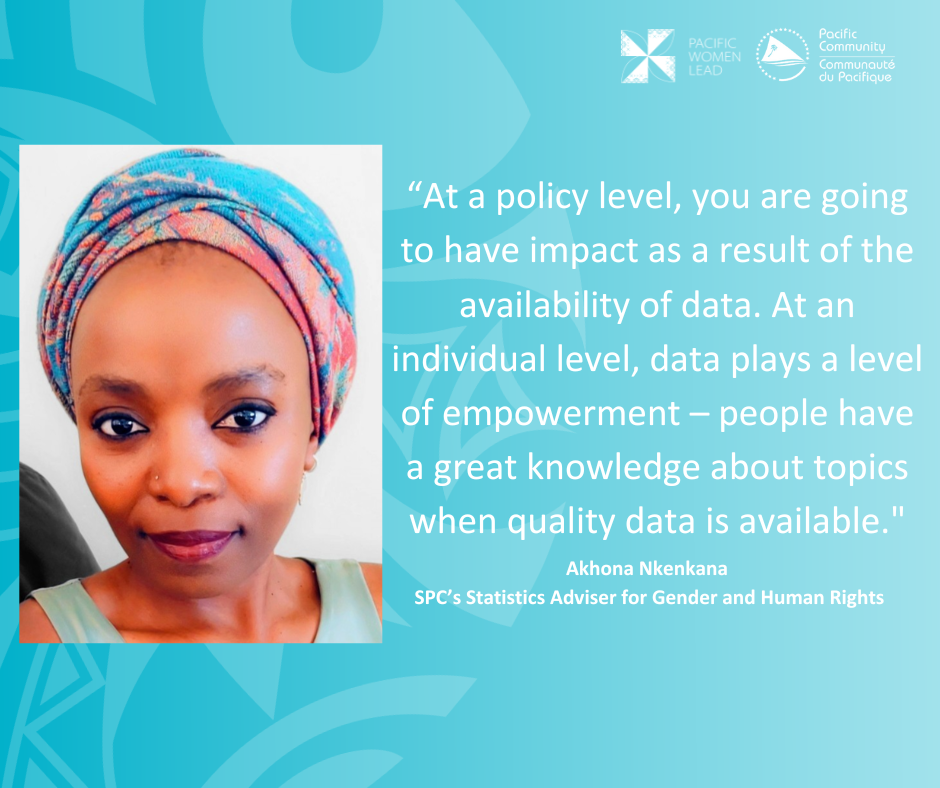
“Gender and human rights statistics: no measure has ever been so important towards envisioning a society that is equal and safe for all of its members,” said Akhona Nkenkana, SPC’s Statistics Adviser for Gender and Human Rights.
Quality data and statistics for gender and human rights including registered births and deaths, can guide the implementation of policies, services and laws contributing to change such as ending child marriage.
“A great example of how data can contribute to improving the lives of Pacific people, is the case of girls and young women who are now protected by law to marry later in life. That means girls can, for example, remain at school to complete their education rather than marrying young,” Akhona said.
She explained how data gathered on women married before 18, referred to as child marriage, can be used by government, civil society and others to make positive changes to legislation. In Tuvalu, data was a central component of the process behind Tuvalu’s Marriage Amendment Act No. 10 of 2015. It proposed to increase the minimum age of marriage from 16 to 18 years, and came into effect in January 2016.
This change reflects recommendations by various treaty bodies and responds to the Tuvalu Demographic and Health Survey that found nearly one in 10 girls (9.9% in 2007) were married before the age of 18,. Following adoption of the new laws and other initiatives, the latest statistics found the rate reduced to one in 50 (2% in 2019), as detailed in the Tuvalu Multiple Indicator Cluster Survey. All data is available on the Pacific Data Hub.
Gender and human rights data complements Civil Registration and Vital Statistics (CRVS), which registers critical life events such as births and deaths that provide crucial information for a country to develop relevant public policies. Advancements for CRVS, including the development of specific national CRVS, have emphasised that an efficient, accurate and cost-effective registration system contributes to the achievement of basic human rights through improved planning for access to education, health, law and justice, and other public services where proof of identity is required.
With a focus on these two issues, Akhona Nkenkana, works with partners regionally and globally to fill the gap for quality, reliable statistics and data in the Pacific region – a gap shared with many other regions in the world.
“At a policy level you are going to have impact as a result of the availability of data. At an individual level data plays a level of empowerment – people have a great knowledge about topics when quality data is available,” Akhona said.
Central to her work is to support implementation of the Pacific Roadmap on Gender Statistics. Its objectives are to work with national, regional, and international organisations in the Pacific to improve data availability on gender statistics – ensuring data is available and has a high level of quality and reliability.
This work also contributes towards the Sustainable Development Goals (SDGs) progress reporting for SPC member states and the development of key indicators for the Pacific’s progress against SDG 5 on gender equality.
“The work on gender, human rights and CRVS to ensure the availability of robust data is essential in the implementation of gender equality and human rights standards and commitments, to support policy formulation, impact assessment and transparency,” Akhona explained.



